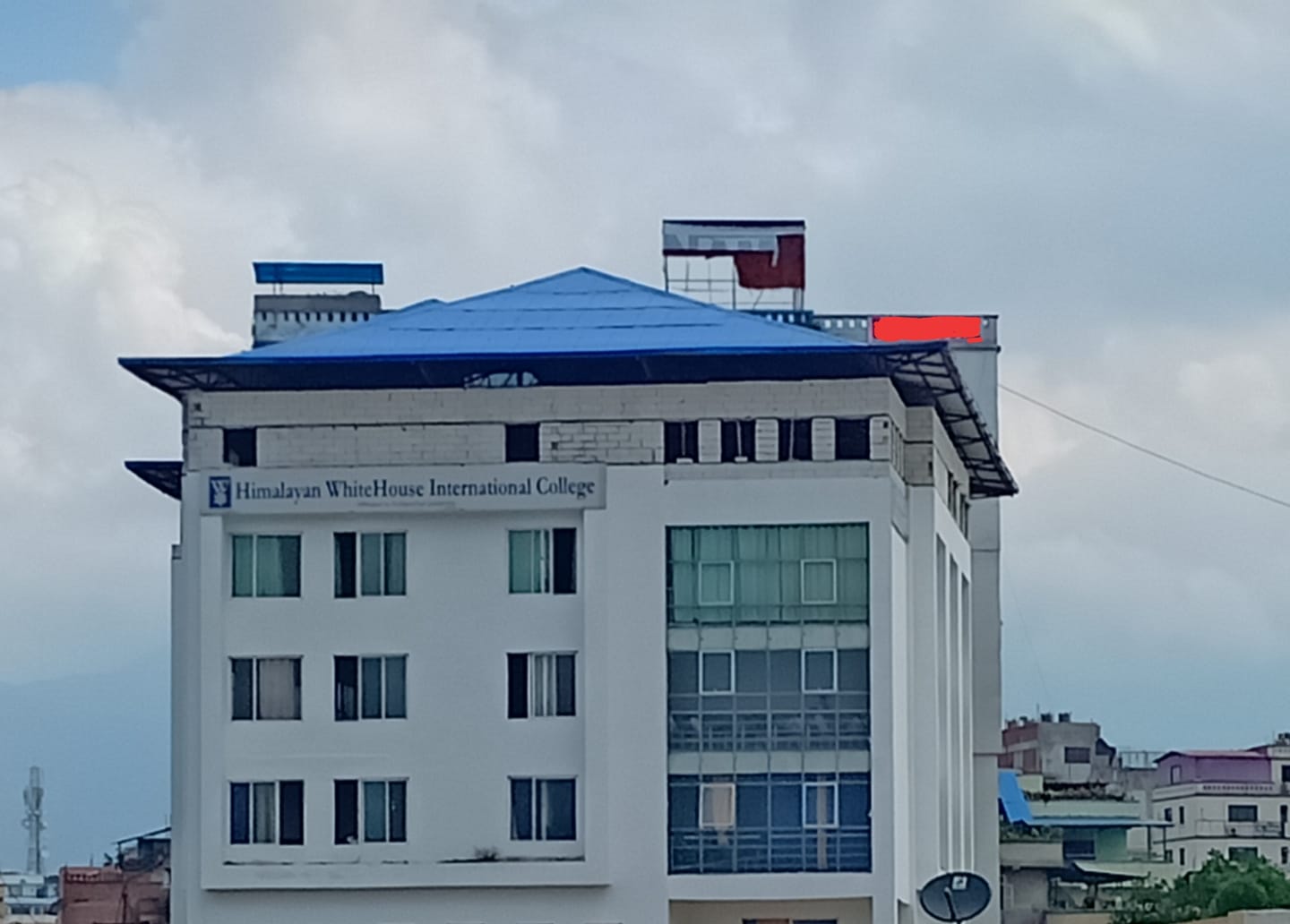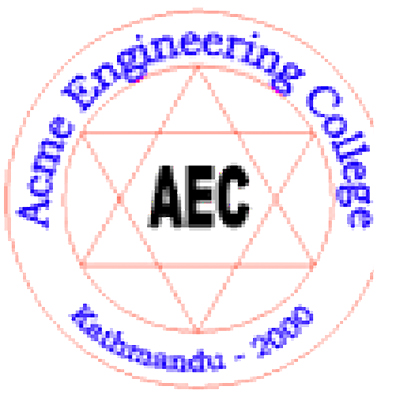Overview
Bachelor of Electronics and Communication Engineering at Himalayan WhiteHouse International College
The Bachelor of Electronics and Communication Engineering (BE ECE) program at Himalayan WhiteHouse International College, affiliated with Purbanchal University (Engineering Programs Nepal), offers a comprehensive pathway into this dynamic field.
This Electronics and Communication Engineering Degree program is designed to provide you with a strong foundation in the principles and practices of modern electronics and communication systems. Located in Kathmandu, Himalayan WhiteHouse International College provides an ideal setting for pursuing your engineering education and exploring diverse career opportunities in Electronics and Communication Engineering. This BE ECE course is your stepping stone to becoming a skilled engineer ready to shape the future of technology.
Curriculum Details
The ECE Curriculum at Himalayan WhiteHouse International College is structured to offer a balanced combination of theoretical knowledge and practical application. Over four years, the program progressively builds your expertise, starting with fundamental concepts and advancing to specialized areas within electronics and communication engineering.

Core Courses:
The initial years of the Bachelor of Electronics and Communication Engineering program focus on establishing a robust understanding of core engineering principles. These core courses are essential for all electronics and communication engineers and include:
-
Circuit Theory and Analysis: Learn the fundamental laws and theorems that govern electrical circuits, necessary for understanding how electronic systems function.
-
Electronic Devices and Circuits: Explore the characteristics and applications of various electronic components, such as diodes, transistors, and operational amplifiers, which form the building blocks of electronic circuits.
-
Digital Logic Design: Understand the principles of digital systems, including Boolean algebra, logic gates, and the design of combinational and sequential circuits.
-
Signals and Systems: Study the mathematical representation and analysis of signals and systems, which are crucial for communication and signal processing.
-
Electromagnetic Theory: Delve into the principles of electromagnetism, which are fundamental to understanding wireless communication and wave propagation.
-
Communication Systems: Learn analog and digital communication techniques, including modulation, demodulation, and transmission methods.
-
Microprocessors and Microcontrollers: This course will teach you about the architecture and interfacing of microprocessors and microcontrollers, which are essential for embedded systems design.
-
Control Systems: Explore the principles of feedback control and learn to design systems that can automatically regulate and maintain desired outputs.
Specializations and Electives
In the program's later years, you'll have opportunities to specialize and explore areas that align with your interests and career aspirations through specializations and electives. While specific specializations may evolve with industry trends and faculty expertise, typical elective options in a Bachelor of Electronics and Communication Engineering program might include:
-
Wireless Communication: Focus on modern wireless technologies, including cellular networks, Wi-Fi, and satellite communication.
-
Embedded Systems Design: Deepen your knowledge in designing and implementing embedded systems for various applications, from consumer electronics to industrial automation.
-
Digital Signal Processing (DSP): Learn advanced techniques for processing signals in the digital domain, which are crucial for audio, image, and video processing.
-
VLSI Design: This course explores the design and fabrication of large-scale integrated (VLSI) circuits, which are the foundation of modern microelectronics.
-
Optical Communication: Study the principles and applications of fiber optic communication systems, which are essential for high-speed data transmission.
-
Robotics and Automation: Integrate electronics and control systems knowledge to understand and develop robotic systems and automated processes.
Objectives
The BE ECE program at Himalayan WhiteHouse International College has clear objectives to ensure graduates are well-prepared for their professional journey. The primary goals of this program are to:
-
Provide a strong theoretical foundation in electronics and communication engineering principles.
-
Develop practical skills in designing, analyzing, and implementing electronic and communication systems.
-
Cultivate problem-solving abilities and critical thinking essential for engineering challenges.
-
Encourage innovation and creativity in developing technological solutions.
-
Prepare graduates for successful careers in diverse electronics and communication engineering sectors, as well as for advanced studies and research.
-
Instill professional ethics and a commitment to lifelong learning.
Scope
The scope of BE ECE is vast, touching almost every aspect of modern life. EC ECE professionals are at the forefront of innovation, from smart devices and the internet to medical devices and aerospace technology. Graduates with a Bachelor of Electronics and Communication Engineering degree can contribute to:
-
Telecommunications: Designing and managing communication networks, including mobile, internet, and broadcasting.
-
Consumer Electronics: Developing new electronic devices and improving existing ones, from home appliances to entertainment systems.
-
Embedded Systems: Creating intelligent systems integrated into various products, such as automobiles, industrial machinery, and medical equipment.
-
Aerospace and Defense: Working on communication and control systems for aircraft, satellites, and defense technologies.
-
Information Technology: Contributing to network infrastructure, data communication, and cybersecurity.
-
Healthcare Technology: Developing medical imaging equipment, patient monitoring systems, and other healthcare electronic devices.
-
Renewable Energy: Designing electronic systems for solar power, wind energy, and smart grids.
-
Research and Development: Pushing the boundaries of knowledge in electronics and communication through academic and industrial research.
Skill Development Modules
The BE ECE program incorporates dedicated skill development modules to ensure practical competence. These modules are designed to provide hands-on experience and build essential technical skills through:
-
Laboratory Sessions: Extensive lab work in electronics, circuits, communication, and digital systems using industry-standard equipment.
-
Project-Based Learning: Engaging in individual and group projects that simulate real-world engineering challenges, allowing you to apply your theoretical knowledge to practical problems.
-
Workshops and Seminars: Students participate in workshops and seminars led by experts to gain insights into current trends and technologies.
-
Software Training: Learning to use industry-standard software tools for circuit simulation, PCB design, communication system modeling, and embedded systems development.
-
Internship Opportunities: Seeking internships in relevant industries to gain practical experience and professional exposure.
Teaching Methodology
The teaching methodology employed in the Bachelor of Electronics and Communication Engineering program at Himalayan WhiteHouse International College emphasizes active learning and practical application. This includes:
-
Interactive Lectures: Engaging lectures that encourage student participation and discussion.
-
Problem-Solving Sessions: Dedicated sessions for working through practical problems and case studies.
-
Laboratory Practice: Hands-on experimentation and design in well-equipped labs.
-
Group Projects: Collaborative projects to enhance teamwork and project management skills.
-
Industry Visits: Visits to relevant industries to provide real-world context and exposure.
-
Guest Lectures: Invited talks from industry professionals and academic experts to deliver their knowledge and experience.
Faculty Expertise
The Himalayan WhiteHouse International College faculty for the Bachelor of Electronics and Communication Engineering program comprises highly qualified and experienced professionals. Faculty expertise includes:
-
Professors with advanced degrees (Master's and PhD) in Electronics and Communication Engineering and related fields.
-
Experienced instructors with industry backgrounds, bringing practical insights into the classroom.
-
Faculty actively participate in research and scholarly activities, keeping the curriculum current with the latest technological advancements.
-
Dedicated mentors who provide academic guidance and support to students throughout their program.
Admission Requirements
To be eligible for the Bachelor of Electronics and Communication Engineering program at Himalayan WhiteHouse International College (Engineering College Kathmandu), applicants typically need to meet the following admission requirements:
-
Completing a +2 level (or equivalent) in the Science stream, with Physics, Chemistry, and Mathematics as compulsory subjects.
-
Minimum specified grades or CGPA in +2 or equivalent examinations as per Purbanchal University guidelines.
-
Meeting any additional criteria set by the college for admission.
Career Opportunities
Graduates of the Bachelor of Electronics and Communication Engineering program from Himalayan WhiteHouse International College have access to diverse career opportunities. Potential career paths include:
-
Communication Engineer: Designing and managing telecommunication networks.
-
Electronics Engineer: Developing and testing electronic devices and systems.
-
Embedded Systems Engineer: Creating and programming embedded systems for various applications.
-
Network Engineer: Designing, implementing, and maintaining computer networks.
-
VLSI Design Engineer: Designing integrated circuits for electronic devices.
-
Control Systems Engineer: Developing and implementing control systems for automation.
-
Robotics Engineer: Designing and building robotic systems.
-
Research Engineer: Conducting research in electronics and communication technologies.
-
Government and Public Sector Jobs: Opportunities in telecommunication regulatory bodies, defense organizations, and public infrastructure projects.
Student Life and Extracurricular Activities
Student life and extracurricular activities at Himalayan WhiteHouse International College are designed to provide a well-rounded college experience beyond academics. Students can participate in:
-
Student Clubs: Joining clubs related to electronics, robotics, programming, and other interests.
-
Technical Events: Participating in workshops, seminars, tech competitions, and project exhibitions.
-
Sports and Cultural Activities: Engaging in sports, cultural events, and other extracurricular activities to promote personal development and social interaction.
-
Department of Student Affairs (DOSA): Getting involved in student-led initiatives and events organized by DOSA.
-
Toastmasters Club: Developing communication and leadership skills through the LeadBox Toastmasters Club.
Scholarships and Financial Aid
Himalayan WhiteHouse International College offers scholarships and financial aid to deserving students to make quality education accessible. Scholarship opportunities are typically based on merit and may include:
-
Merit-based scholarships for students with academic records.
-
Scholarships for students from disadvantaged backgrounds.
-
Potential program-specific scholarships.
Why Choose This Course?
Choosing a Bachelor of Electronics and Communication Engineering degree is choosing a path to innovation and technological advancement. Why choose this course? Because it offers:
-
High Demand: ECE graduates are highly sought after in various industries globally.
-
Innovation Potential: The field constantly evolves, offering opportunities to create and innovate new technologies.
-
Impactful Career: ECE professionals contribute to advancements that improve lives and connect the world.
-
Versatile Skills: The program develops a broad skillset applicable across diverse engineering and technology sectors.
-
Intellectual Stimulation: The field is intellectually challenging and rewarding, offering continuous learning opportunities.
Why Choose This College?
Why choose Himalayan WhiteHouse International College for your Bachelor of Electronics and Communication Engineering degree? Because it offers:
-
Quality Education: A commitment to providing a rigorous and comprehensive engineering education.
-
Experienced Faculty: Learn from knowledgeable and dedicated faculty members.
-
Practical Learning: Emphasis on hands-on learning and skill development through labs and projects.
-
Modern Facilities: Well-equipped laboratories and learning resources to support your studies.
-
Supportive Environment: A conducive and supportive campus environment for academic and personal growth.
-
Affiliation with Purbanchal University: Ensuring your degree is recognized and meets academic standards.
-
Location in Kathmandu: Access to a vibrant educational hub and potential industry connections in Kathmandu.
Conclusion
The BE ECE program at Himalayan WhiteHouse International College provides a strong foundation and the necessary skills to excel in the exciting and ever-evolving world of electronics and communication. Suppose you are passionate about technology, problem-solving, and innovation. In that case, this program at Engineering College Kathmandu is an excellent choice to launch your engineering career and contribute to shaping the technological landscape of the future.















